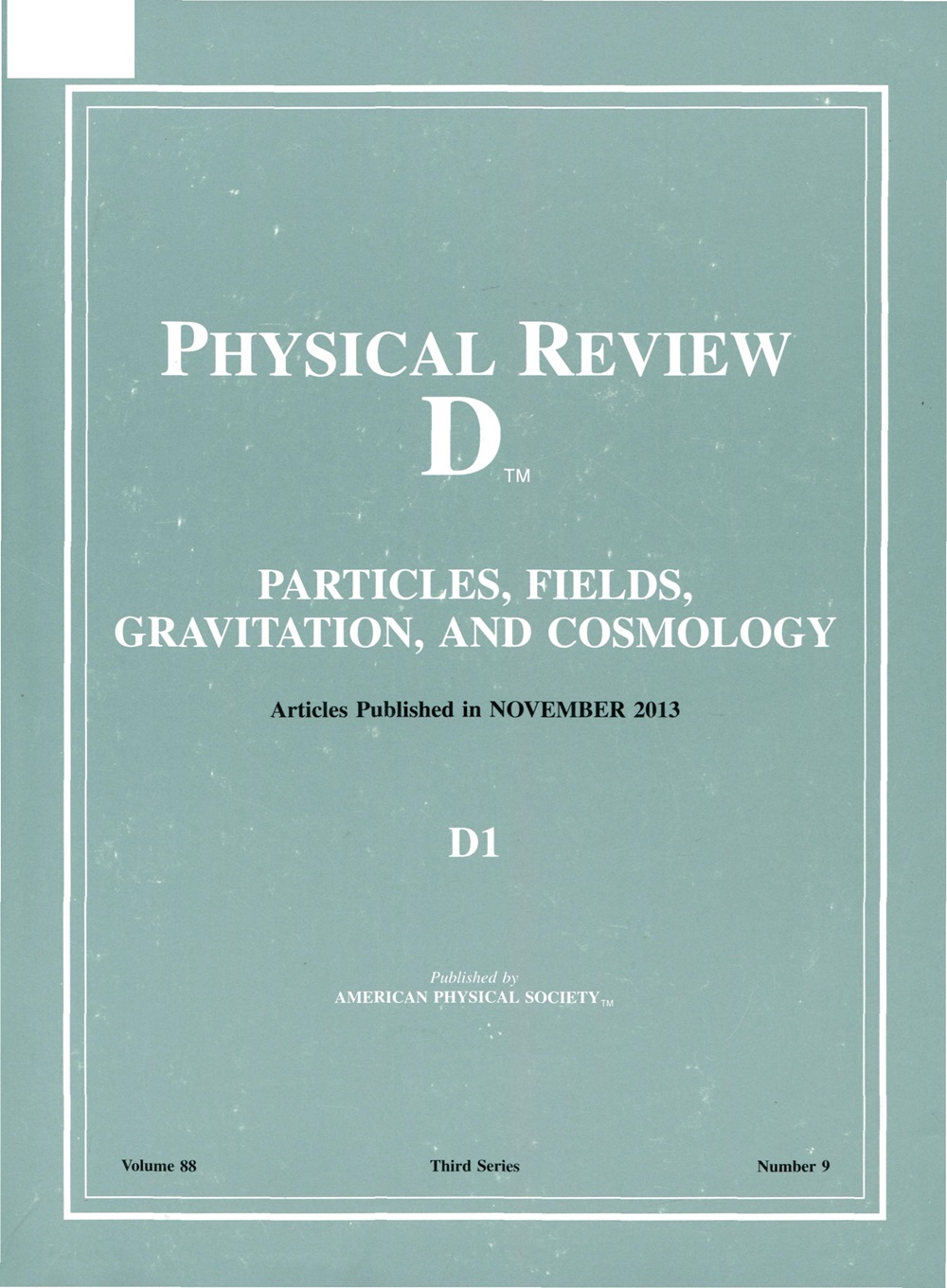Inspiral-inherited ringdown tails
IF 5.3
2区 物理与天体物理
Q1 Physics and Astronomy
引用次数: 0
Abstract
We study the late-time relaxation of a perturbed Schwarzschild black hole, driven by a source term representing an infalling particle in generic orbits. We consider quasicircular and eccentric binaries, dynamical captures and radial infalls, with orbital dynamics driven by an highly accurate analytical radiation reaction. After reviewing the description of the late-time behavior as an integral over the whole inspiral history, we derive an analytical expression that reproduces the slow relaxation (“tail”) observed in our numerical evolutions, obtained with a hyperboloidal compactified grid, for a given noncircular particle trajectory. We find this signal to be a superposition of an infinite number of power-laws, the slowest decaying term being Price’s law. Next, we use our model to explain the several orders-of-magnitude enhancement of tail terms for binaries in noncircular orbits, shedding light on recent unexpected results obtained in numerical evolutions. In particular, we show the dominant terms controlling the enhancement to be activated when the particle is far from the black hole, with small tangential and radial velocities soon before the plunge. As we corroborate with semianalytical calculations, this implies that for large eccentricities the tail amplitude can be correctly extracted even when starting to evolve only from the last apastron before merger. We discuss the implications of these findings on the extraction of late-time tail terms in nonlinear evolutions and possible observational consequences. We also briefly comment on the scattering scenario and on the connection with the soft graviton theorem.螺旋继承的环降尾翼
我们研究了受扰动的施瓦兹柴尔德黑洞的晚期弛豫,该弛豫由代表一般轨道中内坠粒子的源项驱动。我们考虑了准圆双星和偏心双星、动态俘获和径向内陷,轨道动力学由高度精确的分析辐射反应驱动。在回顾了作为整个吸气历史积分的晚期行为描述之后,我们得出了一个分析表达式,该表达式再现了我们在数值演化中观察到的缓慢弛豫("尾部")。我们发现这个信号是无数个幂律的叠加,其中衰减最慢的是普赖斯定律。接下来,我们用我们的模型来解释非圆轨道上双星尾项的几个数量级的增强,从而揭示了最近在数值演化中获得的意想不到的结果。我们特别指出,当粒子远离黑洞时,控制增强的主要项就会被激活,此时切向速度和径向速度都很小,很快就会坠落。我们通过半解析计算证实了这一点,这意味着对于大偏心率来说,即使从合并前的最后一个天顶开始演化,也能正确地提取出尾部振幅。我们讨论了这些发现对提取非线性演化中晚期尾项的影响以及可能的观测结果。我们还简要评论了散射情况以及与软引力子定理的联系。
本文章由计算机程序翻译,如有差异,请以英文原文为准。
求助全文
约1分钟内获得全文
求助全文
来源期刊

Physical Review D
物理-天文与天体物理
CiteScore
9.20
自引率
36.00%
发文量
0
审稿时长
2 months
期刊介绍:
Physical Review D (PRD) is a leading journal in elementary particle physics, field theory, gravitation, and cosmology and is one of the top-cited journals in high-energy physics.
PRD covers experimental and theoretical results in all aspects of particle physics, field theory, gravitation and cosmology, including:
Particle physics experiments,
Electroweak interactions,
Strong interactions,
Lattice field theories, lattice QCD,
Beyond the standard model physics,
Phenomenological aspects of field theory, general methods,
Gravity, cosmology, cosmic rays,
Astrophysics and astroparticle physics,
General relativity,
Formal aspects of field theory, field theory in curved space,
String theory, quantum gravity, gauge/gravity duality.
 求助内容:
求助内容: 应助结果提醒方式:
应助结果提醒方式:


